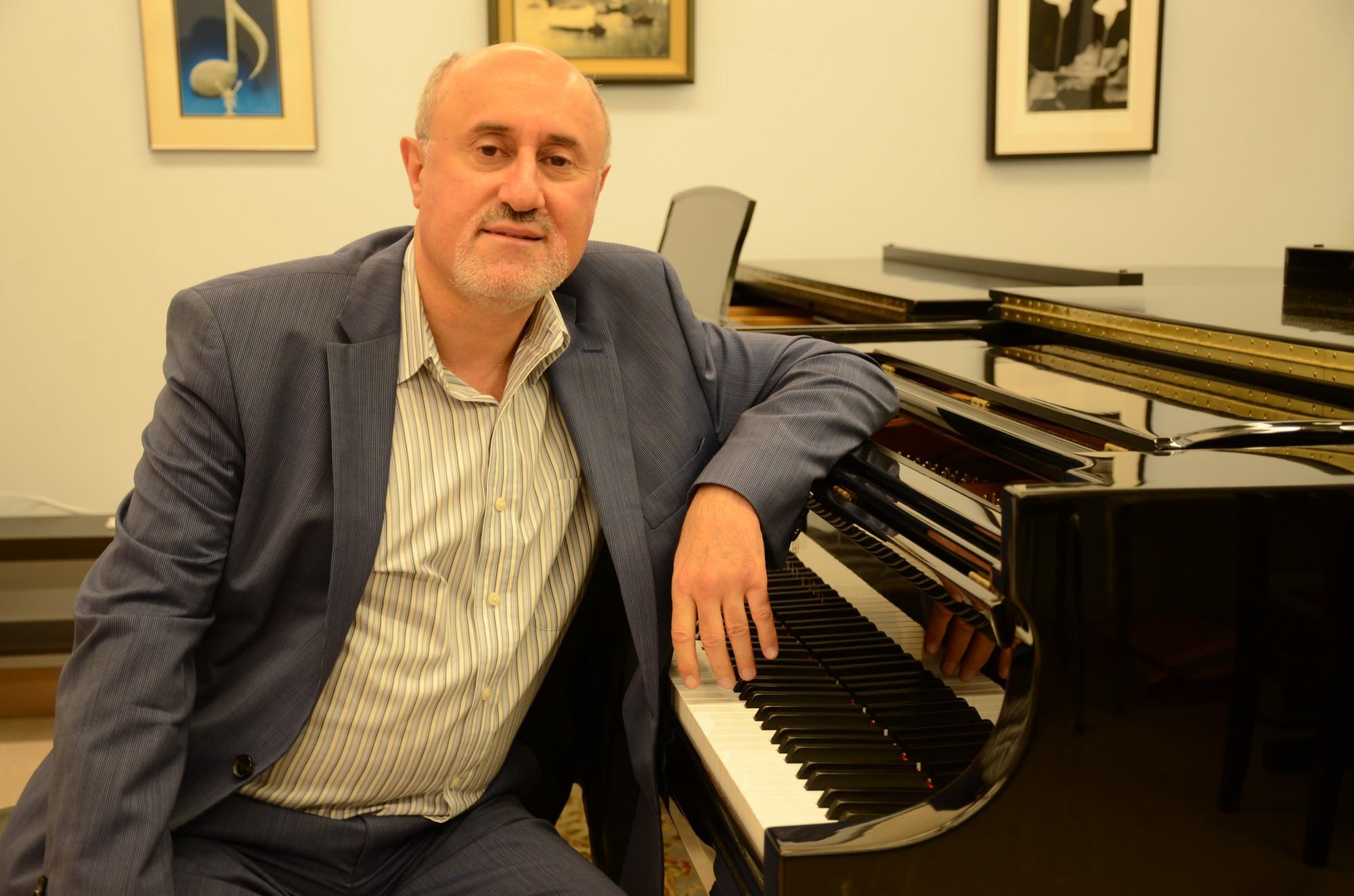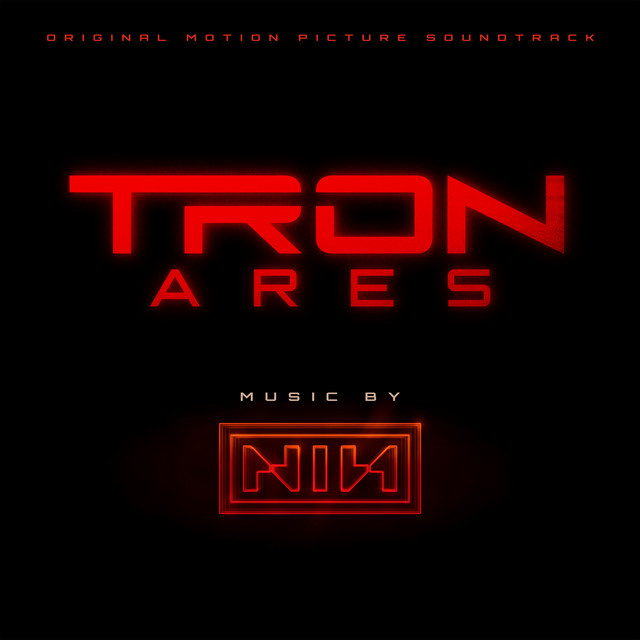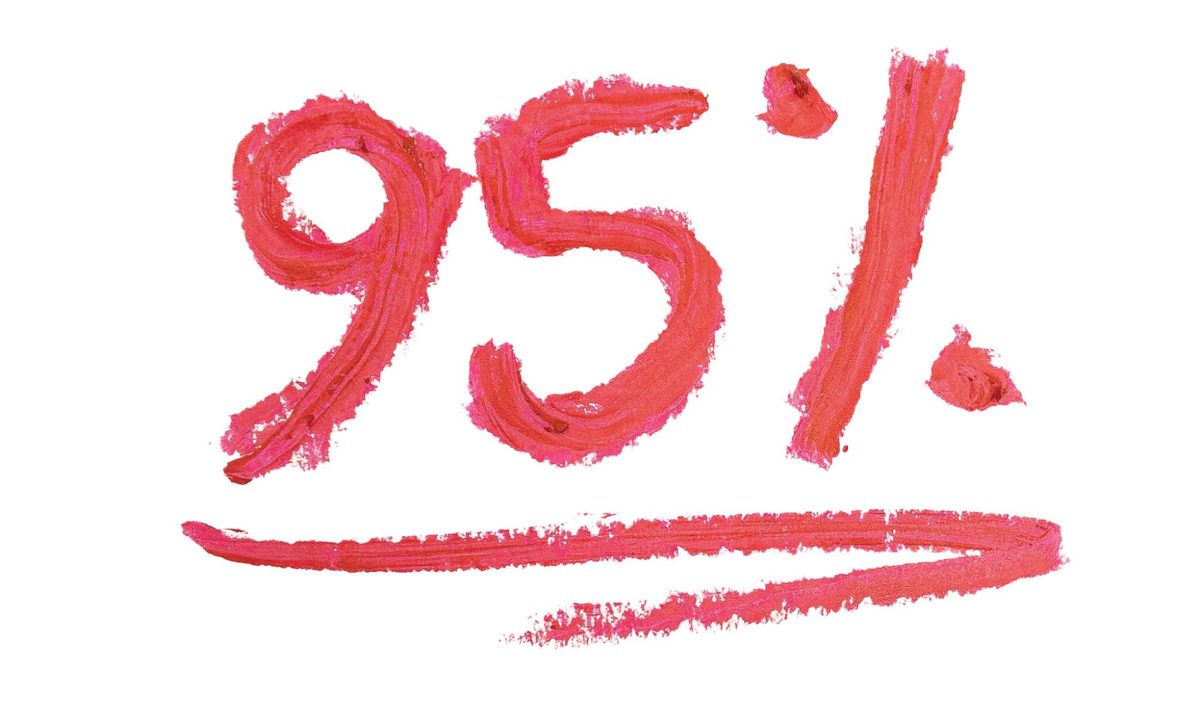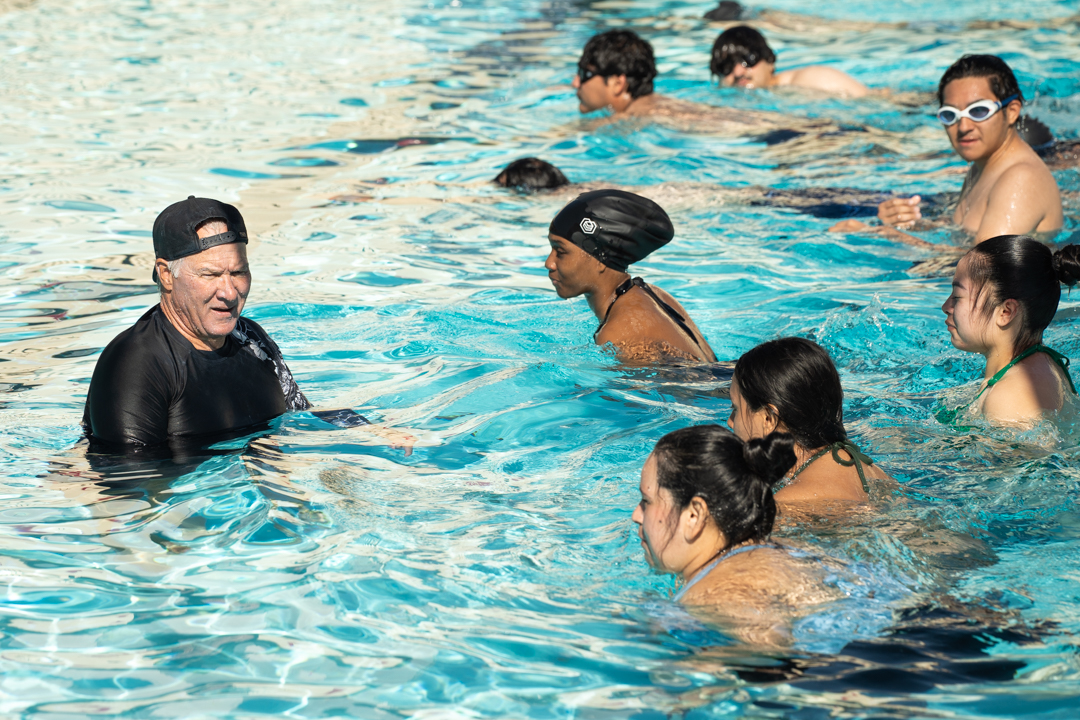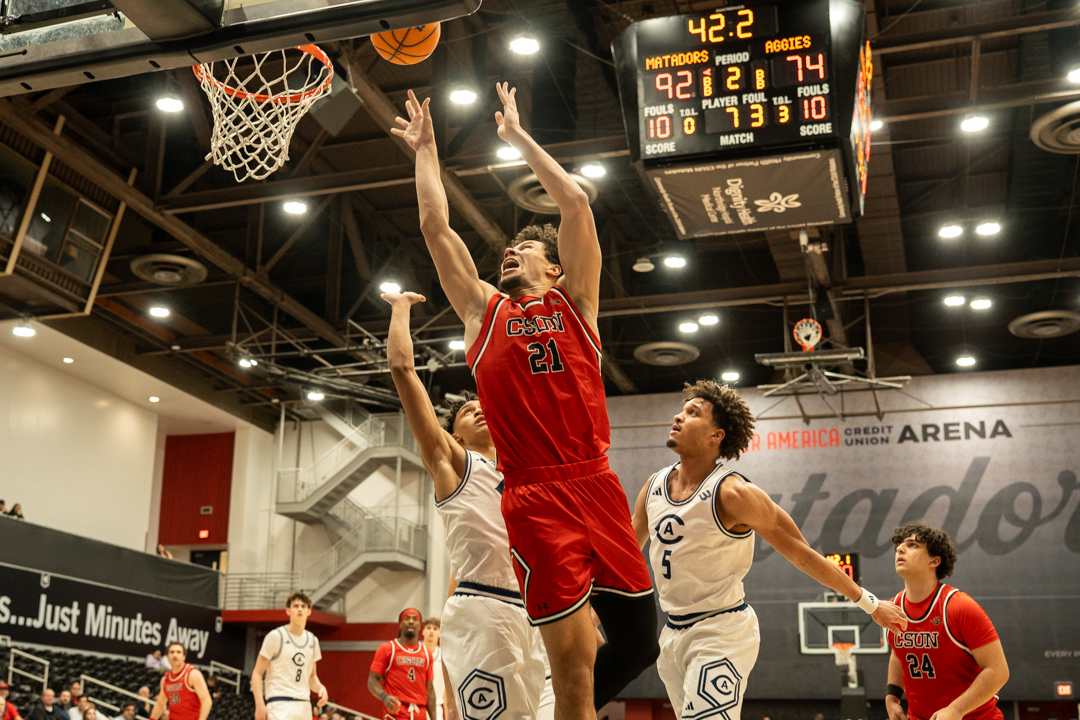He doesn’t play music; he feels the music. His fingers roam erratically across the piano’s 88 keys during his rendition of Alexander Scriabin’s “Sonata No. 5, Opus 53,” before coming back to a gentle, soothing melody.
His eyes are closed, and his mouth is softly quivering, to move along with the music. He sways back and forth as his passion transfers from his mind to his hands, from piano to his audience.
His name is Dmitry Rachmanov, a professor of piano and the head of keyboard studies at California State University, Northridge, and although his performance of Scriabin’s work took place last year as part of the Old First Concerts, an independent concert series based out of the bay area, he will display his talents this coming Saturday as part of the Faculty Artist Recital at the Cypress Recital Hall on the campus.
We sat down with Rachmanov to discuss what his favorite places to perform have been, what he thinks success means and why classical music is important for people to listen to.
Q1: You’ve traveled the world playing music. Where would you say your favorite place has been?
Each place has its own highlights and special attractions. I liked to travel to China. There is a boom of classical music and a boom of interest in piano, in particular, in that country. It’s an ancient culture, and yet as far as classical music is concerned, it is just developing, and developing rapidly. In the last 30 to 40 years, things have been blossoming, so whenever you play there, you always get large audiences. You feel in the air their growing, genuine interest in music and piano.
Q2: You’re an award-winning musician and a professor. What validates your work? Awards and acclaim or seeing student success?
Well, the awards are something you strive for, particularly, when you are young and your career is on the rise, but once you settle down, and especially as a professor, your career becomes more balanced. You’re also interested… to find students who are fit to succeed and to groom them and give them a lot of attention. You make it your own priority to see them succeed. That reflects your own face, your own success, as a teacher and musician, if you can develop a student’s talent to a point where it’s recognized and you see the fulfillment of their potential.
Q3: As a teenager, you met one of your mentors, Nadia Reisenberg, and I read that you base your teaching methods on how she taught you. Do you believe that same effect has come across your students?
One of my first graduates, Jason Stoll, went on to get degrees from Julliard in New York and from the Toronto Royal Conservatory. He has come back and is now part of our faculty. The overall impression I got from my teachers makes me what I am today. I am hopeful that the same goes to my students. If I am a successful teacher, then my students will carry with them certain wisdom that I am trying to impart on them.
Q4: As you play the piano, you seem to be in a trance of sorts. What exactly goes through your head when you are in the process of playing a piece of music?
Like an actor, you have to be totally inside the imagery of the content, as well as precise knowledge of what you are doing. In a way, you have to become what the piece of music is telling you. You have to live in it. It requires a lot of concentration, a lot of projecting yourself into what the composer might have felt when he or she created that particular piece of music. So you have to be inside of it, and at the same time you have to be a little bit above it.
Q5: When you first arrived at CSUN you had some goals in mind, one of them was to have more recitals as to elevate the status of the department. How has that goal turned out?
We have come a long way. We have expanded the program, the piano and keyboard area in particular, both qualitatively and quantitatively. We’ve expanded the graduate program here and we’ve come to observe measurable successes. A lot of our students have entered either masters or doctoral programs across the country in some of the top, highest rated schools. We also added other distinguished faculty members, such as Professor John Perry, a world class pianist and pedagogue. We’ve also hosted important, international symposiums, such as the American Liszt Society Annual Festival this past June.
Q6: Why is it important for people to listen to this type of music live?
Music is an important part of world culture. For a young person to have music as part of their education is important. There have been studies that concluded that it benefits you both emotionally and intellectually. It helps you develop your brain.
Q7: Besides piano, what one instrument would you love to be able to master?
In my youth, I really wanted to play violin, because of its beautiful sound and the expression you can get. When I was a child, I studied classical guitar, so I have an affinity to classical guitar. It’s always intriguing to me, how other instruments operate. I love listening to great singers, and I wish I had a talent and voice that could express emotions.
Rachmanov’s performance for the Faculty Artist Recital will take place this Saturday. Doors open at 7 p.m. and the cost is $15 for adults, $10 for faculty, staff, and seniors and $7 for students.
